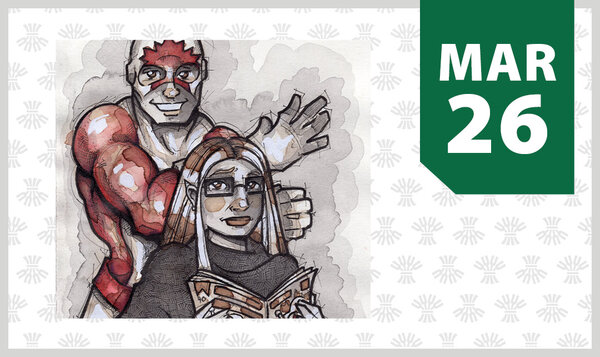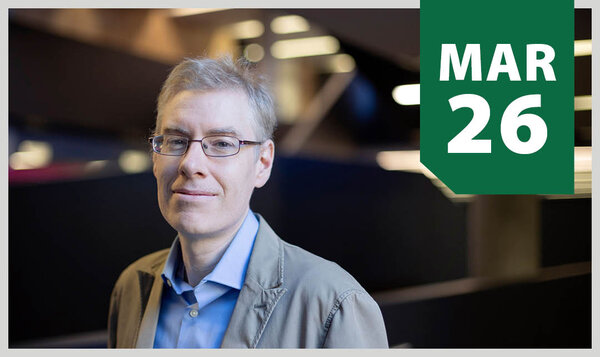
USask Indigenous studies graduates reflect on their education
Jazzlin Walker and Dylan Cooper will receive Bachelor of Arts degrees at Spring Convocation in June
By Shannon Boklaschuk
As Jazzlin Walker and Dylan Cooper prepare to receive their Bachelor of Arts degrees during Spring Convocation, they are reflecting on their time as undergraduate students in the College of Arts and Science at the University of Saskatchewan (USask).
“Reaching this milestone is bittersweet. As much as a relief it is to be finishing up my undergrad degrees, it is also the end of a big and exciting time in my life,” said Walker, who grew up in Nipawin, Sask.
During USask’s Spring Convocation, which runs from June 6 – 10, Walker will receive a Bachelor of Arts (honours) degree in sociology and a Bachelor of Arts three-year degree in Indigenous studies. She is also finishing the final requirement for her Certificate in Criminology and Addictions, which she will receive in the fall.
“All of my hard work and dedication to learning and expanding my mind has gotten me here and, although I am nervous, I am excited for what’s to come in the next chapter of my life,” she said.
“I love learning and always have been a great student so, now that I am finishing up my undergrad, I am excited to focus on learning in other ways. Reaching a huge milestone is always an exciting thing, and I am very proud of myself and all other USask grads for this amazing accomplishment.”
Like Walker, Cooper will also receive a three-year Bachelor of Arts degree in Indigenous studies at Spring Convocation. He said it feels “really good” to complete his degree.
“I am proud of myself for not giving up on the degree, despite the many long breaks I took in between semesters,” he said.
Both Walker and Cooper valued their time in USask’s College of Arts and Science. Through their Indigenous studies classes, they learned about the experiences of Indigenous Peoples, from pre-contact histories to present-day challenges, and examined the historical and contemporary realities of First Nations, Métis and Inuit communities in Canada.
“It took me a while to decide on my major, but when I learned there was program available that would help me understand better where I grew up, I immediately knew that’s what I wanted to learn,” Cooper said.
“The program is transformative in the way you view yourself in the world, so throughout the program my reasons for staying in the program changed from my personal experiences to a broader understanding of the dynamics of society in which we live.”
Cooper, who grew up in Baker Lake, Nunavut, and completed high school in Saskatoon, lauded the faculty members in the Department of Indigenous Studies for helping students to “understand the dimensions and complexity of the systems we live in” and for effectively questioning power structures in constructive ways.
Cooper’s favourite course was INDG 264.3: Aboriginal People and Canadian Politics, taught by former USask faculty member Dr. Damien Lee (PhD). Cooper described it as the “most self-reflective class” he had ever taken.
“Prof. Lee challenged all of us to look further—past answering the questions of historical problems with seemingly simple solutions—and forced us to look deeper within ourselves as to how to enact real change,” Cooper said. “It was a surprisingly philosophical class that made your head hurt in a good way.”
Walker said she went back and forth between Indigenous studies and sociology when it came time to declare her major as an Arts and Science student. When she took the course SOC 212.3: Introduction to Criminology in her second year, however, Walker realized she was interested in studying the theories behind crime and decided to pursue a degree in sociology. She also became interested in pursuing a degree in Indigenous studies when she enrolled in INDG 230.3: Gender in Traditional and Contemporary Indigenous Societies.
“I found the connection between Indigenous studies and sociology and realized how important it is to be educated in Indigenous studies, especially living on the prairies where Indigenous Peoples face disproportionate rates of violence and incarceration,” Walker said. “It was not until I was finishing up my fourth year that I realized that I was able to complete both as majors and declared a second major.”
With his degree now complete, Cooper looks back with fondness on his time at USask. He appreciated studying in Kirk Hall and the sense of community in his Indigenous studies classes. He also enjoyed some of the university’s dining options—such as the burritos in the Arts and Science cafeteria and the buffet at St. Thomas More College—as well as the live music at Louis’.
Cooper’s plans now include pursuing a career in user experience/user interface design, which he sees “a bit of a shift” from his previous academic studies.
“But it is a burgeoning skill that is marketable in the world with a lot of potential for making impactful change,” he said. “I have made the commitment to my academic studies in the near future, but for now I’d like to work and prepare for the next step.”
Walker plans to complete her Certificate in Criminology and Addictions and pursue a career that assists people in need of support. She is currently exploring various master’s degree programs in criminology, sociology and social work.
As her graduation draws nearer, Walker’s advice for new USask students is to “soak in every opportunity at university and have fun.”
“The best part of studying at the College of Arts and Science was getting to know myself and truly becoming who I am,” she said.
“I have learned lots about myself, who I want to be and how I can get there, during my time at USask. I feel like studying at the College of Arts and Science has allowed me to connect with not only myself, but with like-minded individuals who have become great friends of mine. Getting to know other students in the college and faculty members has really been a great experience and I am very happy about the relationships I have created while here.”


